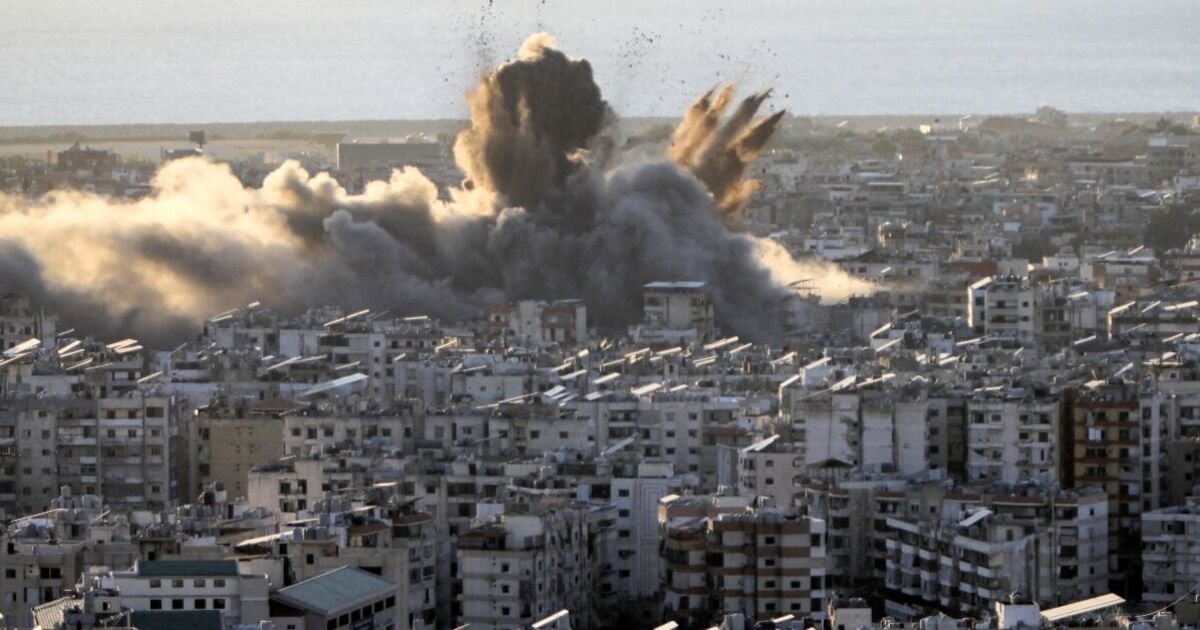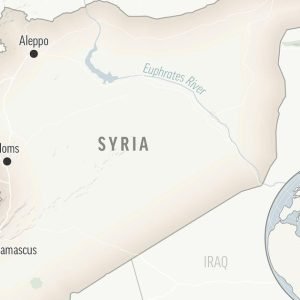
Beirut has been rocked by at least a dozen Israeli airstrikes in a single day after Tel Aviv said a drone targeted Prime Minister Benjamin Netanyahu’s house.
Lebanese authorities said Israel carried out the airstrikes on Beirut’s southern suburbs, Dahiyeh – a heavily populated area home to Hezbollah’s offices. Israel’s military said it struck Hezbollah targets.
In some parts of the city, Israel’s military warned residents to flee, but according to the BBC they weren’t given much time to do so.
At least one multi-storey building was completely destroyed during the airstrikes, though casualty numbers have yet to be confirmed.
News of the latest strikes came after Mr Netanyahu’s office said a drone targeted his holiday house in the Mediterranean coastal town of Caesarea. Neither he nor his wife were there and it wasn’t clear if the property had been hit.
Mr Netanyahu said: ” The proxies of Iran who today tried to assassinate me and my wife made a bitter mistake.”
Hezbollah didn’t claim responsibility for the drone attack, but said it carried out several rocket attacks on northern and central Israel.
The barrage came as Israel is expected to respond to an attack earlier this month by Iran, a key backer of both Hezbollah and Hamas, which are both proscribed by the UK as terrorist groups.
Hezbollah said on Friday it planned to send more guided missiles and exploding drones into Israel. The militant group’s longtime leader, Hassan Nasrallah, was killed in an Israeli airstrike in September and Israel sent ground troops into Lebanon earlier this month.
Israel’s military on Saturday said about 180 projectiles were fired from Lebanon. A 50-year-old man was hit by shrapnel and killed in northern Israel, with four other people wounded, according to Israel’s medical services.
In the northern city of Kiryat Ata, one rocket landed. Itzik Billet, commander for the Haifa area, said nine people were slightly injured.
Meanwhile, in Gaza Israeli forces fired at hospitals in the Palestinian enclave’s battered north, with strikes killing more than 50 people, including children, in less than 24 hours, according to hospital officials and the Associated Press.
Israel and Hamas both signalled a resistance to ending the war in Gaza after the killing of Hamas leader Yahya Sinwar, the chief architect of the raid on Israel more than a year ago that killed about 1,200 people, mostly civilians, and saw another 250 taken hostage. About 100 hostages remain in Gaza, at least 30 of whom Israel says are dead.
Israel’s military on Saturday dropped leaflets in southern Gaza showing Sinwar’s dead body, blood running down his forehead. The leaflets read: “Sinwar destroyed your lives. Whoever lays down his weapons and returns the kidnapped people to us, we will allow him to leave and live in peace.”
Hamas has repeated the hostages won’t be released until there is a cease-fire and Israeli troops withdraw. Mr Netanyahu has insisted Israel’s military will fight until the hostages are released, and will remain in Gaza to prevent a severely weakened Hamas from rearming.







